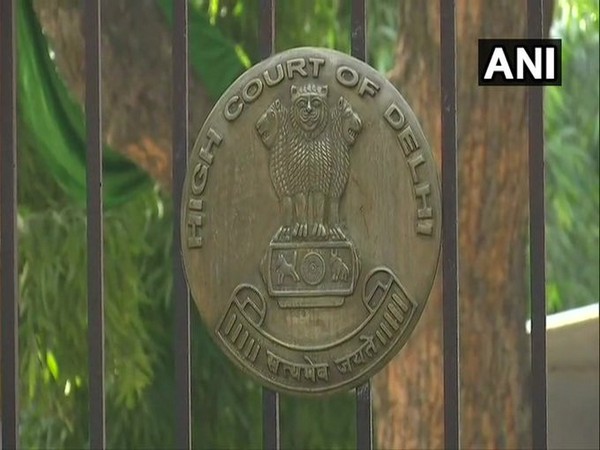Delhi HC grants bail to 4 persons accused of illegal holding of Remdesivir injections during Covid second wave
The Delhi High Court has granted bail to four accused persons in connection with alleged illegal holding and selling of Remdesivir injections during the second wave of the COVID-19 pandemic.

- Country:
- India
The Delhi High Court has granted bail to four accused persons in connection with alleged illegal holding and selling of Remdesivir injections during the second wave of the COVID-19 pandemic. The bench of Justice Subramonium Prasad in an order passed on November 16 granted bail to all accused and said "petitioners shall furnish a personal bond in the sum of Rs 1,00,000 with two sureties each of the like amount, one of them should be a relative of the petitioner."
Court further stated, "It is settled law that the magnitude of the offence cannot be the only criterion for denying bail. The object of bail is to secure the presence of the accused at the trial. The object of bail is neither punitive nor preventative and the person who has not been convicted should be held in custody pending trial only to ensure his attendance at trial and to ensure that the evidence is not tampered with and the witnesses are not threatened is no apprehension of interference in the administration of justice in a criminal trial by an accused then a person should not be deprived of his liberty." The court noted that the charge sheet has been filed. "The evidence, which is primarily documentary in nature, has been collected and is already in the custody of the police. The exhibits have been sent for sampling and for verification. The petitioners are accused of offences punishable under sections 420/468/471/188/120B /34 Indian Penal Code (IPC) and sections 3/7 of the Essential Commodities Act and Section 3 of the Epidemic Disease Act and if convicted the petitioners can be sentenced for imprisonment for a maximum period of seven years," said the court.
The petitioners have already spent seven months in custody, noted the court adding that though the petitioners are accused of a nefarious and depraved offence, "taking into account the fact that the evidence which is primarily documentary in nature and is already in the custody of the police, this court is of the opinion that no useful purpose would be in prolonging the incarceration of the petitioners." The accused who are granted bail are-- Mohan Kumar Jha, Mohd Shoaib Khan, Aditya Gautam and Pushkar Chandrakant Pakhale.
Advocates Ratnesh Kant, Aditya Aggarwal, Sandeep Deshmukh, Nishant Sharma, Pradeep Rana, Abhishek Rana, Ankit Rana, Nitish Pande represented all the accused. Advocate Amit Chadha, Additional Public Prosecutor represented the Delhi Police in the matter. According to the Delhi Police charge sheet, there is ample evidence in the form of CDRs and WhatsApp chats against the petitioners to demonstrate the petitioners' involvement in supplying fake injections to the needy patients and their family members during the time of critical healthcare crisis.
The charge sheet mentioned persons who had purchased the Remdesivir injections for their families. It is further mentioned in the charge-sheet that the CDRs, the WhatsApp chats, themobile phones of the petitioners and the DVRs have been sent to the Forensic Science Laboratory (FSL), Rohini and a report on that is awaited. It is also mentioned in the charge-sheet that investigation is being carried out with respect to the allegedly forged labels that were recovered from the possession of one of the accused and the samples of those labels have been sent to the company called Copivri - which manufactures the Remdesivir injections, to check the authenticity thereof. It is also mentioned in the charge sheet that the reports from FSL and the report from Copivri are awaited.
The charge sheet summed up that the conspiracy was hatched by the petitioners to cheat the public at large at the height of a raging pandemic. The charge sheet also stated that the petitioners are part of a well-organised syndicate whose motive was to loot people during a vulnerable time and was largely a crime against society and humanity. In April-May months this year, Delhi Police in a major crackdown on black marketing of counterfeit drugs, busted a manufacturing unit of 'fake Remdesivir' at Uttarakhand's Kotdwar and arrested several people associated with the inter-state racket of 'fake life-saving injections'.
Crime Branch (Delhi) had also seized 198 vials of alleged fake 'Remdesivir injections', one packing machine, one batch coding machine, 3,000 empty vials to be used in packing of "Remdesivir" and other packing materials of Azithromycin, one computer used to change the labels of anti-biotic injection vials (identical packing of Remdesivir) with COVIPRI to sell them as Remdesivir, one car, and one scooty. (ANI)
(This story has not been edited by Devdiscourse staff and is auto-generated from a syndicated feed.)
ALSO READ
My taxable income plummeted to Rs 680 in 2021-22 due to Covid-19 losses: BJP's Chandrasekhar
Organize chats and find messages quickly with WhatsApp Chat Filters
Fraudsters create fake WhatsApp accounts of two govt officers in Goa to seek money from people
Olympians excited for Paris Games with fans back in the stands after COVID restrictions
MSMEs in TN crushed by triple impact of demonetisation, GST, and unplanned COVID lockdowns: Congress










